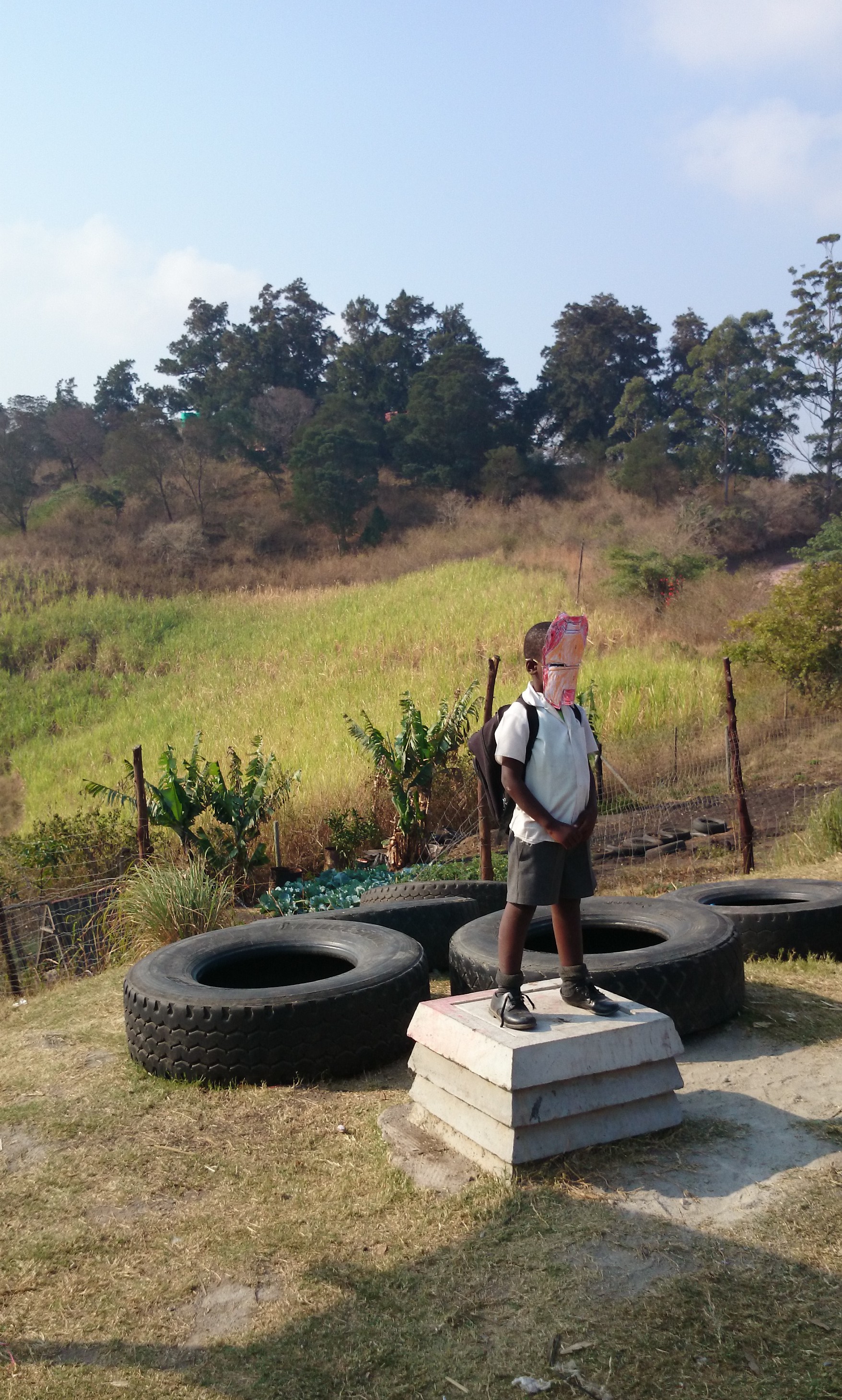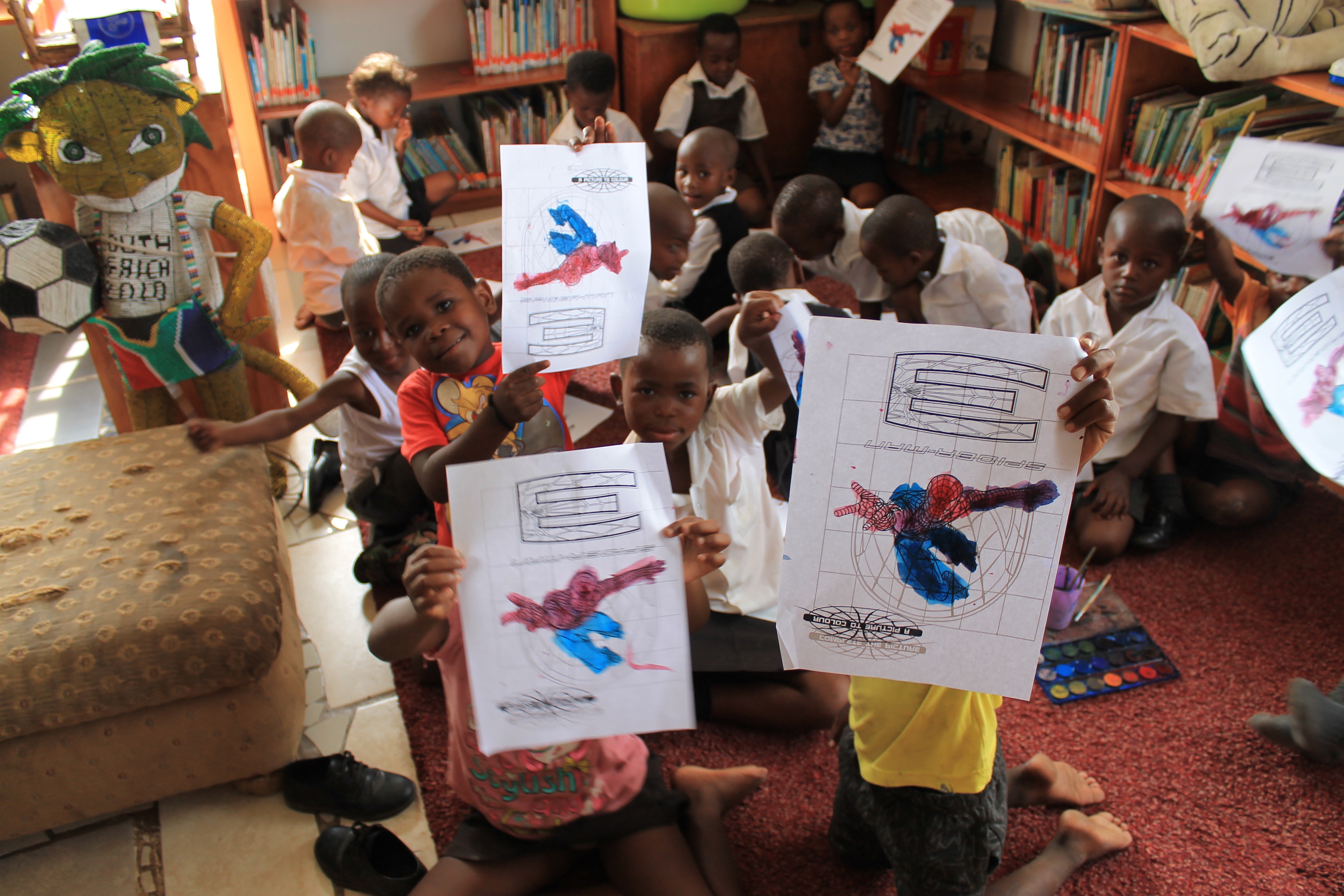hero
/ˈhɪərəʊ/
noun
a person who is admired or idealized for courage, outstanding achievements or noble qualitiesvictim
/ˈvɪktɪm/
noun
a person who has come to feel helpless and passive in the face of misfortune or ill-treatment
At Thanda you have a choice. You can be a victim. Or you can be a hero. These are not roles for a game or activity. This is a choice that can define your entire life.
How many times have you turned on the TV and seen a commercial with a sad African child staring back? How do you think that child views themselves? By saying, “Oh shame, poor you” we are perpetuating the cycle and telling them they are helpless on their own.
That is what makes Thanda different from other NGOs.
According to Stats SA, 100% of households in the Umzumbe municipality earn less than R15360 ($1000) per year. But as our Programme Director Tyler Howard says “We’re never defining ourselves that way. We’re trying to offset a lot of what the kids are told.” We’re not saying we’re going to make everything better. We’re saying you have the ability to help yourself.
Superhero stories are a large part of how we do that. Most superheroes are not perfect. But that does not stop them from being a hero. That also doesn’t mean they are not scared or that they always want to do what they do. They are heroes because they took a challenging situation and made the best out of it. Spiderman is a victim when he becomes an orphan. He is a victim when his uncle gets killed. But he does not see it that way. He sees the positive in the good people who raised him, and when something bad happens he sees he could have done something about it. He sees he has control of the situation. When our Grade 1 groups put on the spiderman masks they made, they are the heroes.
We use other examples of this theme throughout our staff training and curriculum. The staff look at Emily Dickinson’s poem, Success is Counted Sweetest, that shows the positive side of challenges by saying if you have no adversity, you are never going to get anywhere. The fact that this poem was written in 1859 helps to emphasize that this is not a new idea. People have been suffering and overcoming that suffering for a long time.
Global perspective is also important in our staff training. They look at the slums in India, the Favelas in Brazil and put their own experiences in perspective. There are good and bad to every situation and looking at other situations helps to see the good in their own. While we look up to other people and nations, the reality is that South Africa is looked up to by other African nations as a success. Our attitudes make a difference. If we think about how we carry ourselves, we have the possibility of being listened to. It is important not to dwell on the powerlessness, but focus on the powers we do have.
One of our key texts, The Gruffalo, teaches this lesson. The smallest animal, the mouse, is the only one that gets food in the end. If he had seen himself as small and incapable he would have been eaten. Instead, he knew his strengths and out smarts his predators. As Tyler notes, “if we build their self-esteem and ability to think about what is going on, that is what is likely to alter the scenario”.
The X-Men is another great teaching tool for this concept. Magneto’s parents are killed in the Holocaust. In the movie version, his mom is actually killed in front of him by a scientist who is trying to test Magneto’s mutant powers. When Magneto is older, and there are more mutants, his attitude is that they can never trust the non-mutants.
On the flip side, Magneto’s friend Charles, also a mutant, doesn’t have these traumatic experiences from his past so it is much easier for him to trust people. It is interesting to see how these two different experiences shaped them. This helps to teach the danger of the victim identity. Carrying this weight can have negative consequences. As Nelson Mandela said, “having resentment, is like drinking poison and hoping it will kill your enemies”.
You can understand that it is a lot more difficult for Magneto to let go of his resentment, but at the end of the day that is what will improve the situation. He is the bad guy, not because he is evil, but because he is locked up in his victimhood. He cannot get passed it and then everything ultimately becomes unsolvable. At Thanda, we are not denying the reality of this community. We’re just not dwelling on it. We’re saying, these are your realities, these are your challenges – not your victimhood.

Songs help our learners relate to these ideas in a modern context. Singers and rappers that they look up to, are talking about these same ideas. “I can” and “My Generation” by Nas, are songs that say we can do it as this generation – that we don’t have to follow the same pattern as those before us. With the right tools, we can all be heroes.
“Read more, learn more, change the globe…
I know I can (I know I can)
Be what I want to be (be what I want to be)
If I work hard at it (if I work hard at it)
I’ll be where I want to be”



1 Comment
Gary siler
Mar, 22, 2016Sam, very cool. I/we are very proud of what you, your sister, and family are doing for so many! Gary